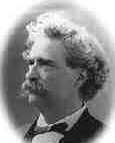The proverbial German phenomenon gezegde
 |
Clive James (1939-) |  |
Aantal gezegden is 1469561
varav 1407627 på engelska
Gezegde (1469561 st) Zoek
Categoriën (2627 st) Zoek
Auteurs (167535 st) Zoek
Afbeeldingen (4592 st)
Geboren (10495 st)
Gestorven (3318 st)
Datums (9517 st)
Landen (5315 st)
Idiom (4439 st)
Lengths
Toplists (6 st)
Denna sidan visar ordspråk som liknar "The proverbial German phenomenon of the verb-at-the-end about which droll tales of absentminded professors who would begin a sentence, ramble on for an entire lecture, and then finish up by rattling off a string of verbs by which their audience, for whom the stack had long since lost its coherence, would be totally nonplussed, are told, is an excellent example of linguistic recursion.".
Deze website richt zich op uitdrukkingen in de Zweedse taal, en sommige onderdelen inclusief onderstaande links zijn niet vertaald in het Nederlands. Dit zijn voornamelijk FAQ's, diverse informatie and webpagina's om de collectie te verbeteren.
Här har vi samlat ordspråk i 12928 dagar!
Vad är gezegde?
Hur funkar det?
Vanliga frågor
Om samlingen
Ordspråkshjältar
Hjälp till!
varav 1407627 på engelska
Gezegde (1469561 st) Zoek
Categoriën (2627 st) Zoek
Auteurs (167535 st) Zoek
Afbeeldingen (4592 st)
Geboren (10495 st)
Gestorven (3318 st)
Datums (9517 st)
Landen (5315 st)
Idiom (4439 st)
Lengths
Toplists (6 st)
Denna sidan visar ordspråk som liknar "The proverbial German phenomenon of the verb-at-the-end about which droll tales of absentminded professors who would begin a sentence, ramble on for an entire lecture, and then finish up by rattling off a string of verbs by which their audience, for whom the stack had long since lost its coherence, would be totally nonplussed, are told, is an excellent example of linguistic recursion.".
Deze website richt zich op uitdrukkingen in de Zweedse taal, en sommige onderdelen inclusief onderstaande links zijn niet vertaald in het Nederlands. Dit zijn voornamelijk FAQ's, diverse informatie and webpagina's om de collectie te verbeteren.
Här har vi samlat ordspråk i 12928 dagar!
Vad är gezegde?
Hur funkar det?
Vanliga frågor
Om samlingen
Ordspråkshjältar
Hjälp till!
 |
Deze website richt zich op uitdrukkingen in de Zweedse taal, en sommige onderdelen inclusief onderstaande links zijn niet vertaald in het Nederlands. Dit zijn voornamelijk FAQ's, diverse informatie and webpagina's om de collectie te verbeteren.
Här har vi samlat ordspråk i 12928 dagar!
Vad är gezegde?
Hur funkar det?
Vanliga frågor
Om samlingen
Ordspråkshjältar
Hjälp till!
|

